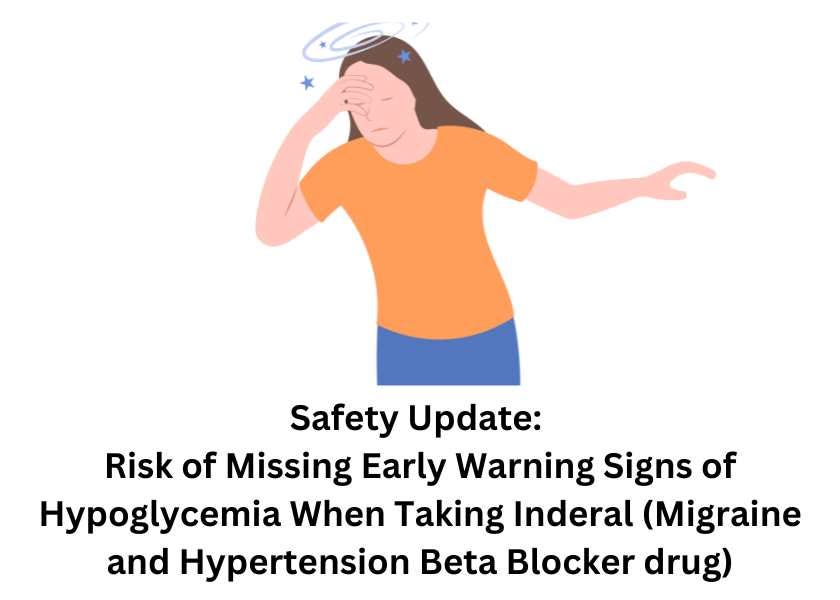November 12, 2023: Zepbound, Cosentyx, Keytruda, Stelara "generic," Inderal and hypoglycemia; CRISPR treatment potential; anxiety herb; questioning osteoporosis drug treatments for reducing fractures
In the first two weeks of November, the FDA made four major drug approvals and reported on two significant drug label changes. A promising new treatment for sickle cell disease may be approved by December; it would be the first-ever CRISPR gene editing treatment approved for human use. Be sure to check out our special post on CRISPR technology. Research studies reveal a lack of transparency with clinical drug trials, and promising research results have been released for Wegovy effect on cardiovascular events.
Drug Approvals
The U.S. FDA approved Eli Lilly's Zepbound (tirzepatide) once-weekly injection for chronic weight management in adults with obesity (BMI of 30 or more) or overweight with at least one weight-related condition (such as high blood pressure, type 2 diabetes or high cholesterol). Eli Lilly's Mounjaro, which also contains tirzepatide, is approved to treat type 2 diabetes. Like Mounjaro, Zepbound's label contains a boxed warning for the risk of thyroid c-cell tumours. In the supporting clinical trial, obesity participants (without diabetes), had an average body of 231 pounds and average BMI of 38. Those receiving the highest dose of Zepbound (15 mg once weekly) lost on average 18% of their body weight. In a separate trial of adults with type 2 diabetes, participants taking the maximum dosage of Zepbound lost on average 12% of their body weight.
The starting and maximum doses for Zepbound and Mounjaro are the same: starting at 2.5 mg weekly injection with a maximum weekly dose of 15 mg.
FDA press release
More on Zepbound: https://diatribe.org/zepbound-tirzepatide-fda-approved-chronic-weight-management
Read patient reviews of Mounjaro (tirzepatide) on Ask a Patient.
Patients, on average, report being very satisfied with Mounjaro (average rating of 4.2). Commonly reported side effects at Ask a Patient include nausea and heartburn.
The FDA approved Novartis' psoriasis drug Cosentyx (secukinumab) for a new indication: hidradenitis suppurativa (HS), a painful skin condition that as of right now has only one other treatment available: Abbvie's Humira, which is also available as a biosimilar (generic).
https://www.fiercepharma.com/pharma/novartis-cosentyx-beats-ucb-drug-finish-line-first-new-biologic-lesser-known-skin-condition
Read and add patient reviews of Cosentyx at Ask a Patient.
The FDA approved Amgen's Wezlana (ustekinumab) as a biosimilar (generic) for J&J's Stelara (ustekinumab) for treating multiple inflammatory diseases including ulcerative colitis and Crohn’s disease in adults and plaque psoriasis and psoriatic arthritis for those 6 and older. Wezlana was also granted interchangeability designation, which means Amgen conducted a switching study between the biosimilar and the reference product, and pharmacists can substitute Wezlana for Stelara without a doctor approving the switch.
FDA Press Release
Wezlana may not be available to patients until January 2025. J&J is dropping a patent infringement lawsuit against Amgen in exchange for Amgen agreeing to delay the launch of its copycat drug Wezlana. Stelara was approved in September 2009 and had almost $14 billion in non-discounted sales (ranked 5th) in 2022, according to the 94th edition of the Healthcare Distribution Alliance Factbook.
https://www.fiercepharma.com/pharma/amgen-scores-fda-nod-its-biosimilar-version-johnson-johnsons-stelara
Read and add patient reviews of Stelara at Ask a Patient.
The FDA approved Takeda Pharmaceuticals' Fruzaqla (fruquintinib) for adult patients with metastatic colorectal cancer.
https://www.fda.gov/drugs/resources-information-approved-drugs/fda-approves-fruquintinib-refractory-metastatic-colorectal-cancer
Safety Label Updates
The FDA narrowed the approved use of Keytruda for gastric cancer: Now, the agency is stating that the indication — which was granted an accelerated approval — is only for patients whose tumors express the PD-L1 protein. Additionally, the FDA approved the Agilent PD-L1 IHC 22C3 pharmDx as a companion diagnostic to determine patients with gastric or GEJ adenocarcinoma have PD-L1. The drug label was modified to include clinical trial results. Keytruda had $12.9 billion in non-discounted sales in 2022, making it the 6th top-selling drug in the U.S., according to the Healthcare Distribution Alliance Factbook.
https://www.curetoday.com/view/fda-amends-keytruda-approval-for-gastric-gej-cancer
FDA Safety Label Change for Keytruda
Migraine and beta blocker blood pressure drug Inderal LA (Propranolol hydrochloride) received a safety label update to increase its warnings about the risk of hypoglycemia. This is because beta blockers may prevent early warning signs of hypoglycemia, especially in patients with diabetes or in patients who are fasting. This is Inderal's first FDA safety label update since it was approved in 1983.
FDA Safety Label Change for Inderal LA
Patient reviews of Inderal on Ask a Patient
(Average review score for Inderal is 3.6, which is a satisfied rating.)
Drug Research
As a result of the 21st Century Cures Act, which allows for accelerated approval of drugs so that patients can gain access to life-saving drugs that would otherwise take years to become available, the U.S. Food and Drug Administration (FDA) has been approving a rising number of novel pharmaceutical drugs based on single clinical trials. Two recent studies by Orgeon State University say that there have been less public disclosure about additional trials, with the more promising trial results filed with the FDA and the less promising trials sometimes never appearing in the Clinical Trials database or appearing only AFTER a drug has been approved. The studies were published in JAMA Network Open and Health Affairs Scholar.
https://scitechdaily.com/concerning-the-fda-is-approving-drugs-after-fewer-trials-and-providing-less-information-to-the-public/
Physician-scientist Eric Topal reports on the results of an anxiously-awaited clinical trial involving 17,000 participants that looked at whether weight loss drug Wegovy (semeglutide) helps reduce cardiovascular events. The study was published in the NEJM.
New Gene Editing Treatment Close to Approval
Check out Ask a Patient® Health News' user-friendly explanation of CRISPR technology along with an infographic explaining how CRISPR is used for a sickle cell disease treatment that may soon be approved by the FDA. December 8 is the deadline to make a decision on the approval of Vertex and CRISPR Therapeutics' Exagamglogene Autocell (exa-cel) treatment for severe sickle cell disease (SCD). If approved, exa-cell may be the first genetic therapy available to over 20,000 people with severe SCD in the U.S. Check out “Gene Editing Explained.”
In its recent review, the FDA’s Cellular, Tissue, and Gene Therapies Advisory Committee said the treatment was safe, and now it is up to the FDA to make a final decision. However, the committee had these concerns about the treatment:
Small clinical trial size: only 40 people participated in the study.
Some of the treated patients later developed blood cancer.
There were problems with “off-target” edits of the genes.
https://www.nature.com/articles/d41586-023-03317-7
Health Supplements Tip: Ashwagandha
Check out MedShadow Foundation's advice on the increasingly popular health supplement Ashwagandha, an herbal shrub grown in India, Africa, and the Middle East. Its chemicals, known as “withanolides,” are thought to have broad beneficial effects on the body and mind, and the herb in various forms has been used as a medical supplement for thousands of years. People take it for a variety of reasons, including stress and anxiety, insomnia, male infertility, and athletic performance. However, there are some side effects and medication interactions to be aware of.
https://medshadow.org/ashwagandha-for-anxiety
Rethinking Preventing Fractures in the Elderly
Is boosting bone mass through pharmacotherapy really the best way to prevent fractures in the elderly? Teppo Järvinen, professor of Orthopaedics and Traumatology at the University of Helsinki, outlines the work he and his colleagues have done that question our current approach to preventing fractures in the elderly. He argues that the focus should be on fall prevention.
Visit us at AskaPatient.com for ratings and review by patients.
Note to readers: We had so much news to report this week that there was no room to publish the data and graphs on drug safety, overseas inspections and pharmaceutical manufacturing establishments in the U.S. and worldwide. A special post will appear this week on the newsletter site, so check back soon.




